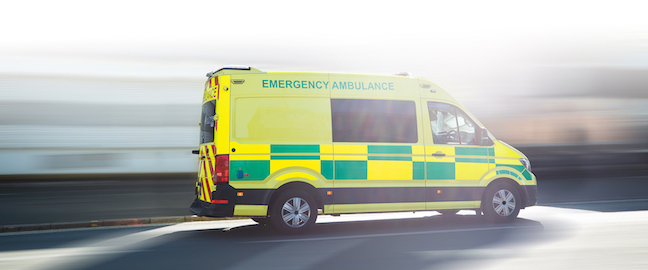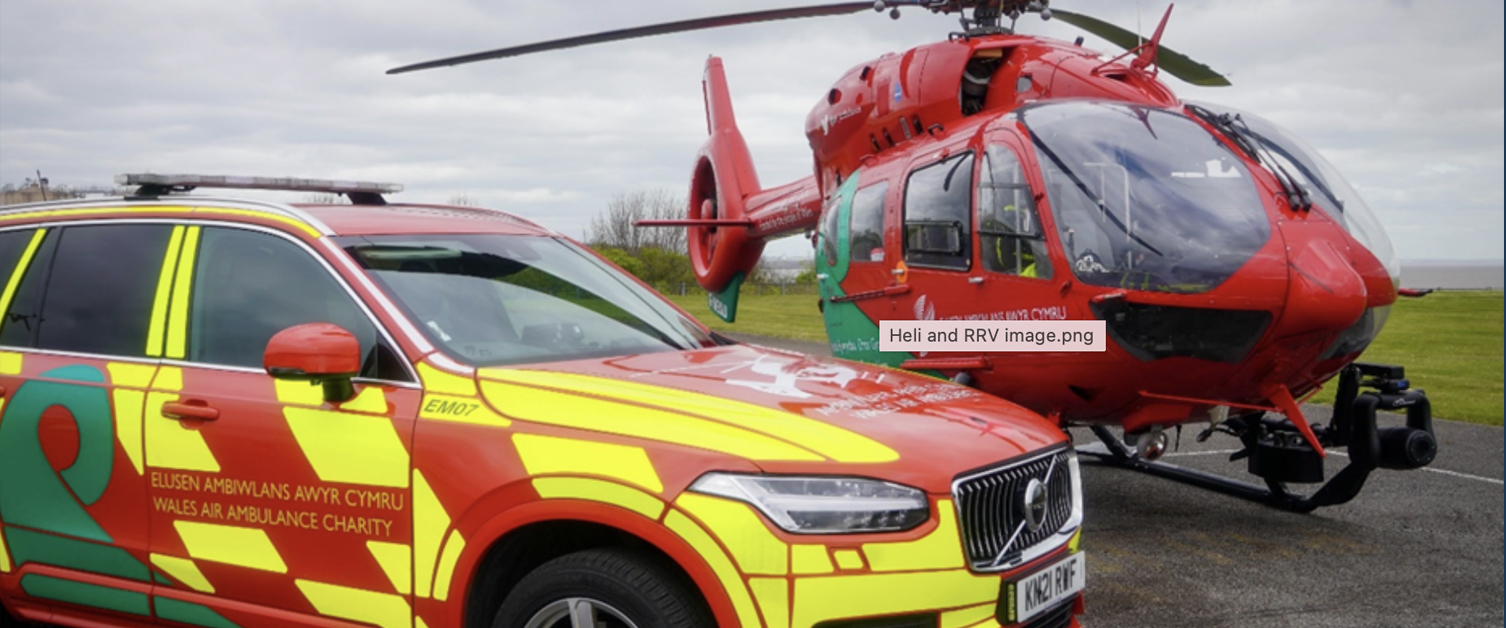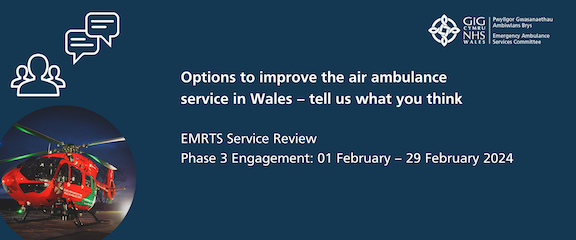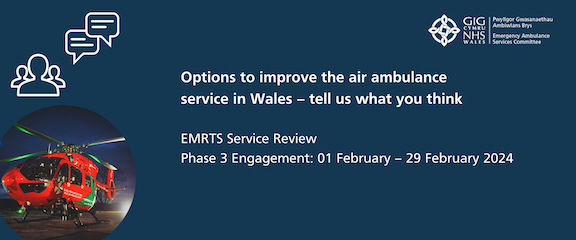Urgent intervention needed to save Air Ambulance Service

Responding to the news that a final report into the future of the Wales Air Ambulance has recommended the closure of Caernarfon and Welshpool bases, Russell George MS, Shadow Health Minister, said:
“This is worrying news for the communities across rural Wales who rely on the specialised services of the Wales Air Ambulance.
“Communities in Mid and North Wales rely on an air ambulance service to make up for the poorer, more sparse local health provision, lack of district general hospitals and road access issues.
“It is imperative that the Labour Health Minister intervenes, urgently. The people of Mid and North Wales need and deserve a reliable service when there is a need for urgent emergency care.”
——————————————-
The third and final engagement phase of the Emergency Medical Retrieval and Transfer Service (EMRTS) Review, about how to further improve the air ambulance service in Wales, has taken place February.
The engagement gives the public and stakeholders to have their say on the shortlisted options to further improve Wales’ air ambulance service.
The service is provided in partnership between the Wales Air Ambulance Charity and NHS Wales’ EMRTS of NHS Wales.
The Charity supplies the helicopters, cars, air bases, pilots, engineers and fuel, whilst the clinical teams are made up of medics and clinicians from NHS Wales.
The purpose of the review is to ensure that as many people as possible benefit from the excellent clinical patient outcomes by making the best use of the clinical teams across Wales.
The review also looks at how to ensure fair geographical coverage across Wales and the effective use of Rapid Response Vehicles (RRVs), especially when the helicopters are unable to fly.
Stephen Harrhy is the Chief Ambulance Services Commissioner tasked with leading the independent review by the Emergency Ambulance Services Committee (EASC)– a joint committee of all health boards in Wales.
The Commissioner is encouraging the public and stakeholders to comment on options throughout February before a Committee decision is made in March.
Mr Harrhy said: “This review is focusing on improving – what is already – a brilliant and highly valued service.
“No decision has yet been made on this issue and this final phase gives me a chance to share what has been heard in Phase 2 engagement and show how the shortlisted options have been arrived at.
“As we have gone through the engagement process it has allowed me to gather more feedback on what really matters to people, to include more options, and to consider potential solutions.
“As part of this process and to help me, an option appraisal workshop has been held with a range of professional colleagues from health board and NHS trusts across Wales.
“The evaluation resulted in two highest scoring options which are now referred to as Option A and Option B.
“The options propose changing operations from Caernarfon and Welshpool and to have a merged base in North Wales somewhere near the A55 to allow the service to help more patients and make more effective use of the clinical crews.
“Even though both two options could improve the air ambulance service, they are not perfect solutions and they do not address all the concerns heard in the public feedback which is why I have shown some extra actions as potential solutions in my report for the engagement.
“I am inviting citizens to comment on the process followed in arriving at these options, the options themselves, and the extra actions I have identified as potential solutions.”
The first phase of the all-Wales public engagement, that began in March 2023, focused on listening to comments, queries and feedback on how to develop options to further improve the air ambulance service.
The second engagement phase took place between October and November 2023 and asked for feedback on the options developed from Phase 1 feedback.
Mr Harrhy said: “This final engagement phase on the shortlisted options will help me arrive at a preferred option that I will then be able to recommend formally to the Emergency Ambulance Services Committee for their decision in March 2024.”
As in earlier engagement phases, people can give their feedback in a range of ways including online, by e-mail, post or telephone. Anyone needing different languages and formats can contact the EASC team who will help.
The Commissioner’s Report, all engagement documents, and details of how to give feedback are on the EASC website.
Cwm Taf Morgannwg University Health Board is also sharing information with local communities about how people can have their say.
Citizens can also contact their local Llais representative to let them know their views.
Llais is the independent statutory body, set up by the Welsh Government to give the people of Wales much more say in the planning and delivery of their health and social care services – locally, regionally and nationally.
More information about Llais is on their website including Llais regional representative details for Cwm Taf Morgannwg University Health Board:




